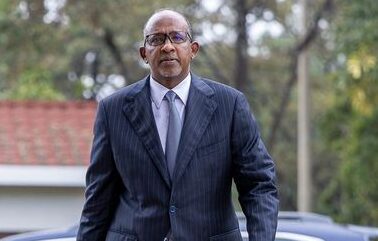The Kenya Medical Research Institute (KEMRI) has officially launched a significantly expanded Polio Laboratory at its Nairobi headquarters, marking a major boost to the nation’s public health infrastructure. The expansion, a collaborative effort involving KEMRI, the Ministry of Health, and the World Health Organization (WHO), is aimed at enhancing the country’s capacity to detect and respond to poliovirus outbreaks.
The event was presided over by Cabinet Secretary for Health, Hon. Aden Duale, who served as the Chief Guest. Senior officials from the Ministry of Health, representatives from the WHO, and top scientists from KEMRI were also in attendance, underscoring the high-level commitment to the initiative. The newly upgraded facility is poised to strengthen Kenya’s ability to monitor poliovirus both nationally and across the East African region.
A Regional Reference Hub
Beyond its national role, the expanded laboratory is designated to serve as a regional reference facility, solidifying Kenya’s position as a key player in the Global Polio Eradication Initiative. In his address, CS Duale highlighted the importance of science and surveillance in combating infectious diseases, stating that the project is a “critical step” in strengthening the country’s disease surveillance system and a testament to the government’s commitment to safeguarding public health.
KEMRI Director General, Prof. Elijah Songok, explained that the upgraded lab’s benefits extend beyond polio. He noted that the facility will also support broader research and innovation, contributing to multiple disease control programs. This sentiment was echoed by WHO representatives, who praised Kenya’s leadership and KEMRI’s scientific excellence while reaffirming their support for the nation’s public health endeavors.
Global Eradication Effort
Polio remains a global public health threat despite significant progress toward its eradication. Laboratory surveillance is a vital component of the global effort, enabling rapid detection of the virus and swift responses to prevent outbreaks. With this expansion, Kenya is now better equipped to contribute to this crucial mission, thereby protecting communities and children from the threat of poliovirus. The initiative marks a significant advancement in Kenya’s ongoing efforts to secure its public health future.
